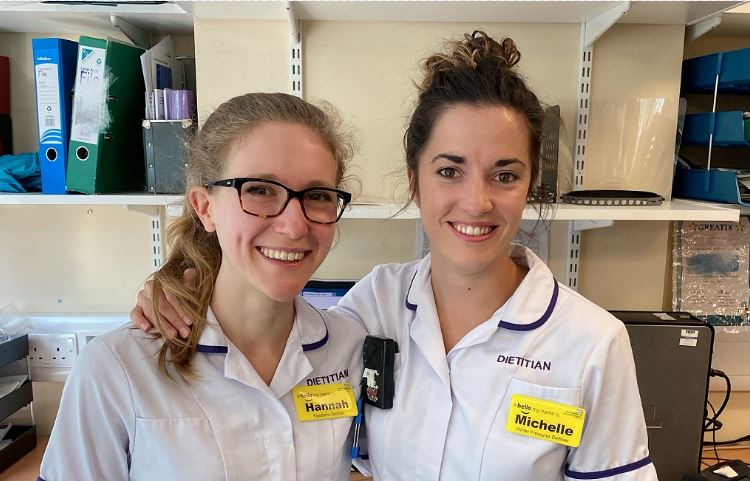The benefit of breast milk

To mark Breastfeeding Celebration Week, we've revisited the below piece about the benefits of breast milk written by Hannah Cooper and Michelle Gevers, paediatric dietitians. Photo taken pre-Covid-19 pandemic.
As paediatric dietitians we have a crucial role in ensuring appropriate nutrition and hydration is provided to infants and children. Breastfeeding support and encouragement is essential to improve nutritional provision. According to the WHO over 820,000 children could be saved yearly if all children 0-23 months were optimally breastfed.
The last UK-wide Infant Feeding Survey was conducted in 2010, this showed that 24% of infants in England were exclusively breastfed at 6 weeks, 17% of infants were exclusively breastfed at 3 months of age, 12% of infants were exclusively breastfed at 4 months of age and a staggering 1% of infants were exclusively breastfed at 6 months of age.
Based on the WHO and UNICEF recommendations we advise mums to exclusively breastfeed their baby for the first 6 months of life. This means that other than breast milk, no other food or liquid should be provided to your baby- including water.
The power of breast milk
Breast milk is unique in both its nutritional composition and in the non-nutritive bioactive factors that promote survival and development. It is uniquely suited to the infant; it is a complex, multi-faceted and ever changing feed, providing the baby with their exact needs. Breast milk alters its macronutrient composition depending on the age of baby at delivery (i.e. premature or term infant), the duration of a breast feed and even the time of day.
During our nutritional assessments we will monitor the growth of the infant, assess the frequency and length of breastfeeds, advise mum on fully emptying her breasts to get the full benefits of fore and hind milk and signpost mums to further breastfeeding support and help if needed. If baby is unable to breastfeed at the breast then we will advise mum to express breast milk frequently to ensure baby still gets the benefits of mums milk.
Breast milk contains:
- stem cells which assist in providing new cells for the body as it grows and repairing damaged cells,
- human milk oligosaccharides (HMOs) – sugars which are indigestible to the baby but feed friendly gut bacteria,
- antibodies which are specifically tailored to bacteria and viruses found in your environment,
- immune cells, cytokines and antimicrobial factors which all help support the baby while it’s immune system is still developing,
- oxytocin – a hormone which reduces stress and promotes feelings of well-being
- alpha-lactalbumin – a protein with pain relief properties,
- extra melatonin at night which helps mum and baby go back to sleep quickly.
There are many benefits to mother and baby and part of our role is to educate mums on these to enable them to make informed decisions. Breastfeeding is important to the infant to protect against illness and infection, for brain and nervous system development and in the future these infants are less likely to be overweight, have diabetes or heart problems. Breastfeeding reduces mums risks of health complications such as cancer, cardiovascular disease, and osteoporosis. In addition to this breast milk is readily available, is free, and requires no preparation or equipment.
It is important that all healthcare workers understand that breastfeeding is the best source of nourishment for infants and that together we can promote and support mothers to exclusively breastfeed until 6 months of age.
